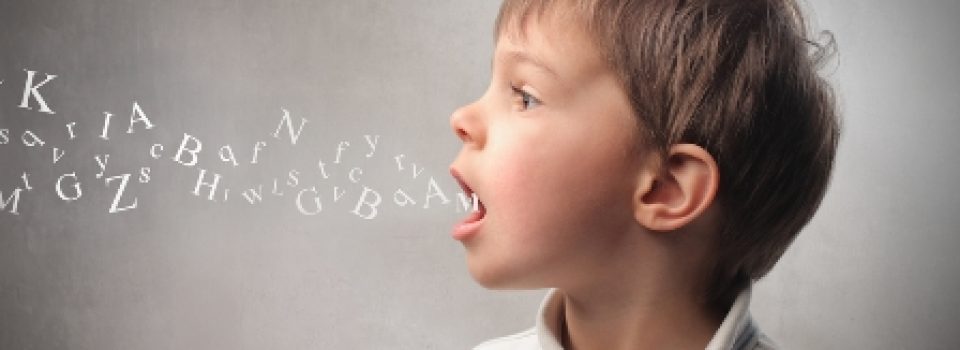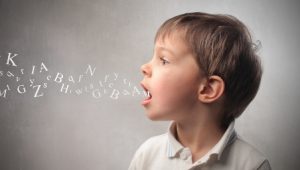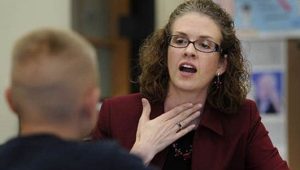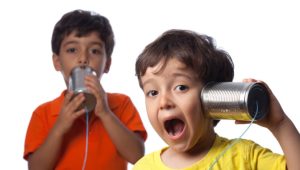| Development speech and language difficulties in children can result from a variety of causes including stroke, brain injury or deterioration, developmental delays or disorders, learning disabilities, cerebral palsy, cleft palate, mental retardation, hearing loss, or emotional problems.It is very essential to know the fact that developmental language deficits do not disappear with age. These disabilities develop into permanent deficiencies with severe long term consequences such as problems at school (reading, writing and spellings), difficulties to understand tasks with language related contexts, behavioral abnormalities and emotional problems.
Before addressing this issue any further let us look into the Normal Development of Speech and Language because knowing what’s “normal” and what’s not in speech and language development can help parents to figure out if they should be concerned or if their child is right on schedule.:
UNDERSTANDING NORMAL SPEECH AND LANGUAGE DEVELOPMENT
Age of Child’s Typical Language Development
6 Months
- Vocalization with intonation
- Responds to his name
- Responds to human voices without visual cues by turning his head and eyes
- Responds appropriately to friendly and angry tones
12 Months
- Uses one or more words with meaning (this may be a fragment of a word)
- Understands simple instructions, especially if vocal or physical cues are given
- Practices inflection
- Is aware of the social value of speech
18 Months
- Has vocabulary of approximately 5-20 words
- Vocabulary made up chiefly of nouns
- Some echolalia (repeating a word or phrase over and over)
- Much jargon with emotional content
- Is able to follow simple commands
24 Months
- Can name a number of objects common to his surroundings
- Is able to use at least two prepositions, usually chosen from the following: in, on, under
- Combines words into a short sentence-largely noun-verb combinations (mean) length of
- sentences is given as 1.2 words
- Approximately 2/3 of what child says should be intelligible
- Vocabulary of approximately 150-300 words
- Rhythm and fluency often poor
- Volume and pitch of voice not yet well-controlled
- Can use two pronouns correctly: I, me, you, although me and I are often confused
- My and mine are beginning to emerge
- Responds to such commands as “show me your eyes (nose, mouth, hair)”
36 Months
- Use pronouns I, you, me correctly
- Is using some plurals and past tenses
- Knows at least three prepositions, usually in, on, under
- Knows chief parts of body and should be able to indicate these if not name
- Handles three word sentences easily
- Has in the neighborhood of 900-1000 words
- About 90% of what child says should be intelligible
- Verbs begin to predominate
- Understands most simple questions dealing with his environment and activities
- Relates his experiences so that they can be followed with reason
- Able to reason out such questions as “what must you do when you are sleepy, hungry, cool, or thirsty?”
- Should be able to give his sex, name, age
- Should not be expected to answer all questions even though he understands what is expected
48 Months
- Knows names of familiar animals
- Can use at least four prepositions or can demonstrate his understanding of their meaning when
- given commands
- Names common objects in picture books or magazines
- Knows one or more colors
- Can repeat 4 digits when they are given slowly
- Can usually repeat words of four syllables
- Demonstrates understanding of over and under
- Has most vowels and diphthongs and the consonants p, b, m, w, n well established
Often indulges in make-believe
- Extensive verbalization as he carries out activities
- Understands such concepts as longer, larger, when a contrast is presented
- Readily follows simple commands even though the stimulus objects are not in sight
- Much repetition of words, phrases, syllables, and even sounds
60 Months
- Can use many descriptive words spontaneously-both adjectives and adverbs
- Knows common opposites: big-little, hard-soft, heave-light, etc
- Has number concepts of 4 or more
- Can count to ten
- Speech should be completely intelligible, in spite of articulation problems
- Should have all vowels and the consonants, m, p, b, h, w, k, g, t, d, n, ng, y (yellow)
- Should be able to repeat sentences as long as nine words
- Should be able to define common objects in terms of use (hat, shoe, chair)
- Should be able to follow three commands given without interruptions
- Should know his age
- Should have simple time concepts: morning, afternoon, night, day, later, after, while tomorrow, yesterday, today
- Should be using fairly long sentences and should use some compound and some complex sentences
- Speech on the whole should be grammatically correct
|
WARNING SIGNS
It is necessary to seek an evaluation at the earliest by the speech language pathologist if you find that the child had failed to achieve the speech and language milestones at that particular time frame as mentioned above.
What will a Speech Language Pathologist Do!!
When a child comes to a speech language pathologist, he conducts an assessment at first; he will look at a child’s speech and language skills within the context of total development. Besides observing the child, the speech-language pathologist will also conduct standardized tests and scales, and look for milestones in speech and language development. The speech-language pathologist will also assess: · what the child understands (called receptive language) · what the child can say (called expressive language) · If the child is attempting to communicate in other ways, such as pointing, head shaking, gesturing, etc. · Sound development and clarity of speech. · The child’s oral-motor status (how a child’s mouth, tongue, palate, etc., work together for speech as well as eating and swallowing) Based on the assessment the speech-language pathologist will decide if therapy is required as well as the frequency of the therapy. The parent then can observe therapy sessions and learn to participate in the process. The speech therapist will show the parent how to work with the child at home to improve speech and language skills. |







